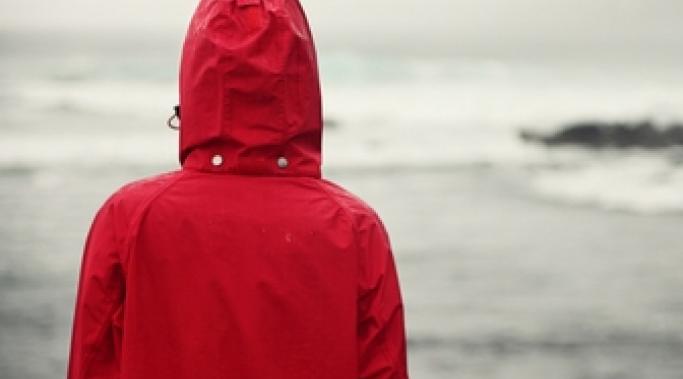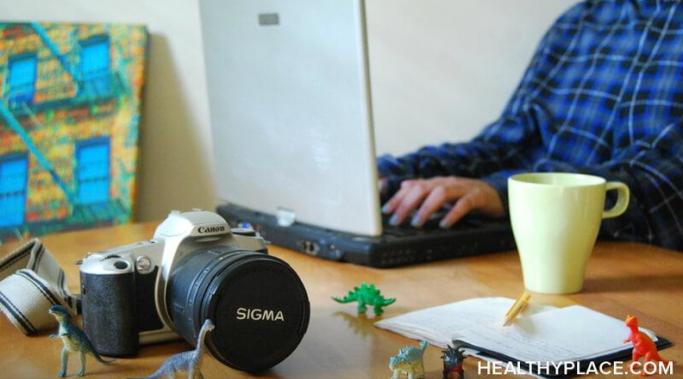Blogs
Undoubtedly, social anxiety interferes with life and can ruin your fun (Social Anxiety: A Spectrum from Shy to Avoidant). Living with social anxiety means being on edge, unable to relax or let our guard down. Experiencing social anxiety means living in fear of doing something embarrassing or being judged as incompetent, inadequate, "less than." Social anxiety creates racing thoughts that are relentlessly self-critical. The anxiety, fear, and sheer exhaustion of all of this can make us shy away from people and social situations. In doing so, is social anxiety ruining your fun?
My doctor questioned my dissociative identity disorder diagnosis because dissociation is a coping skill for me. Dissociative disorders are described as having dissociation as a dysfunction that impairs living life in some way. But I don't think that is always the case. While some view dissociation as a dysfunction, many view dissociation as a positive coping mechanism that actually helps them get through the day. For me, dissociation is the very thing that allows me to function. So is dissociation a coping skill or is it dysfunction?
Finding comfort in depression is diffictul, but not impossible. Coping with depression is already challenging and it can seem impossible to find comfort in the depths of depression. Whether I'm seeking comfort from others or I am attempting to comfort myself, I often find myself coming up empty handed (Depression Support: Why You Need It, Where to Find It). But the challenge of finding comfort in depression is worthwhile and beneficial to coping with the illness.
Living in a family with mental illness, it can feel impossible to find peace. Even when I find a way to be stable and healthy while living with bipolar I disorder, mental illness and its effects still run rampant through my family. Countless times, I have looked at my doctors and asked them, "How do I find peace in a family with mental illness?" Their answer is always the same: "Give up trying to find peace in your family. Instead, find peace in yourself, in your own life, on your own terms." As I order my own world, I find a greater level of peace when dealing with my family, despite the havoc mental illness may cause.
If you want to improve your mental health, you should improve your physical health. You'll be pleased to know there is a direct association between sleep, exercise, nutrition, and emotional health. Individually, chronic sleep loss, lack of physical activity, or eating poorly can exacerbate symptoms of anxiety and depression. So if you want to improve your mental health, you should improve your physical health, too.
I have a mental illness--a disability--but should I check the "disability" box when applying for a job? I recently was laid off at one job and had my hours cut at another, for a total loss of around $500 in income per month. I've dusted off my resumes and started applying for jobs, but have been hindered by a question: "Should I check the disability box?" Several businesses claim to be equal opportunity employers and make an effort to hire people with disabilities (Should You Disclose Mental Illness in the Workplace?). But can we trust them not to discriminate? Should we check the box that says we have a mental illness disability?
When you're under pressure, it can be hard to handle anxiety at work. Many people who have anxiety struggle with change, myself included. It takes awhile for me to adjust to any new situation. At the beginning, I doubt everything and make up the worst scenarios in my head--getting shoved into a locker in middle school, failing college, getting fired from a job, etc. But one thing I learned recently is that even though change can be scary, it can also be a good thing by challenging my anxiety. Read on to learn about how to handle work anxiety when you're under pressure.
Something I always stress to people is that eating disorder recovery is not always a linear process and slips in eating disorder recovery happen. This is unfortunate, but something we need to be aware of. Throughout my recovery journey, I fell back into old disordered eating behaviors countless times before long-term abstinence from binging was able to occur. Here's how to deal with slips in eating disorder recovery.
Mental health stigma affects the loved ones of a person with mental illness, not only the person with the mental illness. I don’t mean in the situations where the loved one openly or inadvertently stigmatizes, but rather the stigma falls onto them to by association. I know it’s sometimes just a worry that we as people with mental illness have, and typically we look at it in the form of thinking we’re embarrassments rather than the targets of stigma, but loved ones face mental health stigma, too.
Our world, it seems, is becoming increasingly toxic; handling anxiety in this fearful, stressful environment can sometimes seem impossible. Negativity swirls around us like dead leaves tossed about in a gust of wind. (And it can feel like the wind picks up not just dead leaves but gravel, pelting us with the gravel; and it can feel like the wind is so violently strong that we can’t move.) It’s not uncommon right now to feel alone in that wind storm because everyone else is trapped in their own anxious storms (Despite Paralyzing Anxiety, There Are Ways To Move). Are humans still driven by kindness, or are they driven by hate toward those who disagree with them? It can be difficult to handle anxiety in a fearful, stressful, toxic world.









